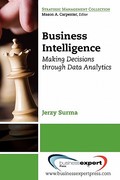Question
nfo for Q8 A small professional sports franchise has decided to move to a ticket pricing system in which students and non-students (notice we didn't
nfo for Q8
A small professional sports franchise has decided to move to a ticket pricing system in which students and non-students (notice we didn't name non-students as "adults"!) are charged different prices. Their marketing department has estimated the demands of these two groups to be represented by the following:
Non-StudentDemand:QNon-St.= 24 - PNon-St.
StudentDemand:PSt.= 8
You may assume that because student ID's are required both to purchase tickets and enter the arena, reselling tickets between the two groups is not possible.
Q8 - i)
Student demand is relatively __________ than non-student demand, reflecting, in part, the fact that student's view this good as more of a __________ than do non-students.
Group of answer choices
Less elastic; luxury
Less elastic; necessity
More elastic; luxury
More elastic; necessity
Flag this Question
More info for Q8
The MRNon-St.function given below reflects the fact that in order to attract more non-students into the arena, the franchise must lower the price of tickets, if it's charging a single price for them:
MRNon-St.= 24 - 2QNon-St.
Now, however, we can compare the MRNon-St.function to what we already KNOW the MRSt.function to be (Why?Hint: Does the team need to drop price to sell another ticket to students?) in order to motivate the team's profit maximizing ticket pricing strategies here.
Assume the team plans to charge a single price for tickets to students and a single price of tickets to non-students
Q8 - ii)
For any Q < ________, the team will sell only to _________, because for that amount of Q, MR ____________.
Group of answer choices
6 tickets ; students ; is less than $8 / ticket.
8 tickets ; non-students ; is greater than $8 / ticket
6 tickets ; students ; is greater than $8 / ticket
8 tickets ; non-students ; equals $8 / ticket
Q8 - iii)
Anyadditionaltickets beyond the first ________ will be sold __________, as MR should ___________.
Group of answer choices
6 ; only to students ; never be lower than $8 / ticket
6 ; only to non-students ; never exceed $8 / ticket
8 ; only to non-students ; never be lower than $8 / ticket
8 ; only to students ; never be lower than $8 / ticket
Q8 - iv)
This monopolist maximizes profit by selling ________ tickets to non-students and __________ tickets to students.
Group of answer choices
24; 26
12; 38
12; 12
8; 42
Flag this Question
More info for Q8
The arena has a capacity of 50 people. Assume the MC of tickets to be zero for any Q less than 50 ; however once capacity has been reached, the MC of another ticket (person) becomes infinite (prohibitive) as the fire marshal essentially shuts down the venue after that point (!). Assume the team maximizes profit:
Q8 - v)
Total ticket revenue under this profit-maximizing strategy will be _________.
Group of answer choices
$464
$576
$400
$288
Q8 - vi)
At this profit-maximizing equilibrium, student demand is ___________, while the elasticity of non-student ticket demand is ___________.
Group of answer choices
Infinitely elastic ; unit elastic
Infinitely inelastic ; unit elastic
Infintiely elastic ; -2
Infinitely inelastic ; -1/2
Q8 - vii)
Given your answer to the previous question, the team charges a greater price to _________ and _____________.
Group of answer choices
Non-Students ; maximizes total revenue over both groups.
Non-Students ; equalizes marginal revenue across both groups.
Both (a) and (b) are true.
Neither (a) nor (b) is true.
Flag this Question
More info for Q8
Suppose, now, that the team is considering adopting a two-part pricing (two-part tariff) system for tickets, in which they would charge individuals a fixed fee (seat license) for the rights to purchase tickets at prices they would also set.
Q8 - viii)
The team _______sell seat licenses to both groups, because ________.
Group of answer choices
Could ; student demand is infinitely elastic.
Could not ; student demand consumer surplus is zero
Could not ; non-student demand consumer surplus is zero
Could ; non-student demand consumer surplus is positive.
Q8 - ix)
If the team pursues its optimal two-part pricing (two-part tariff) system, it will then sell _________ tickets to non-students and _________ tickets to students.
Group of answer choices
12; 38
24; 26
8; 8
16; 34
Q8 - x)
The combination of this optimal two-part pricing system and its ability to sell tickets to two different groups of consumers results in total revenues to the team of _________ , of which ___________ is total seat license revenue.
Group of answer choices
$508 ; $144
$528 ; $128
$520 ; $80
$456 ; $72
Step by Step Solution
There are 3 Steps involved in it
Step: 1

Get Instant Access to Expert-Tailored Solutions
See step-by-step solutions with expert insights and AI powered tools for academic success
Step: 2

Step: 3

Ace Your Homework with AI
Get the answers you need in no time with our AI-driven, step-by-step assistance
Get Started


